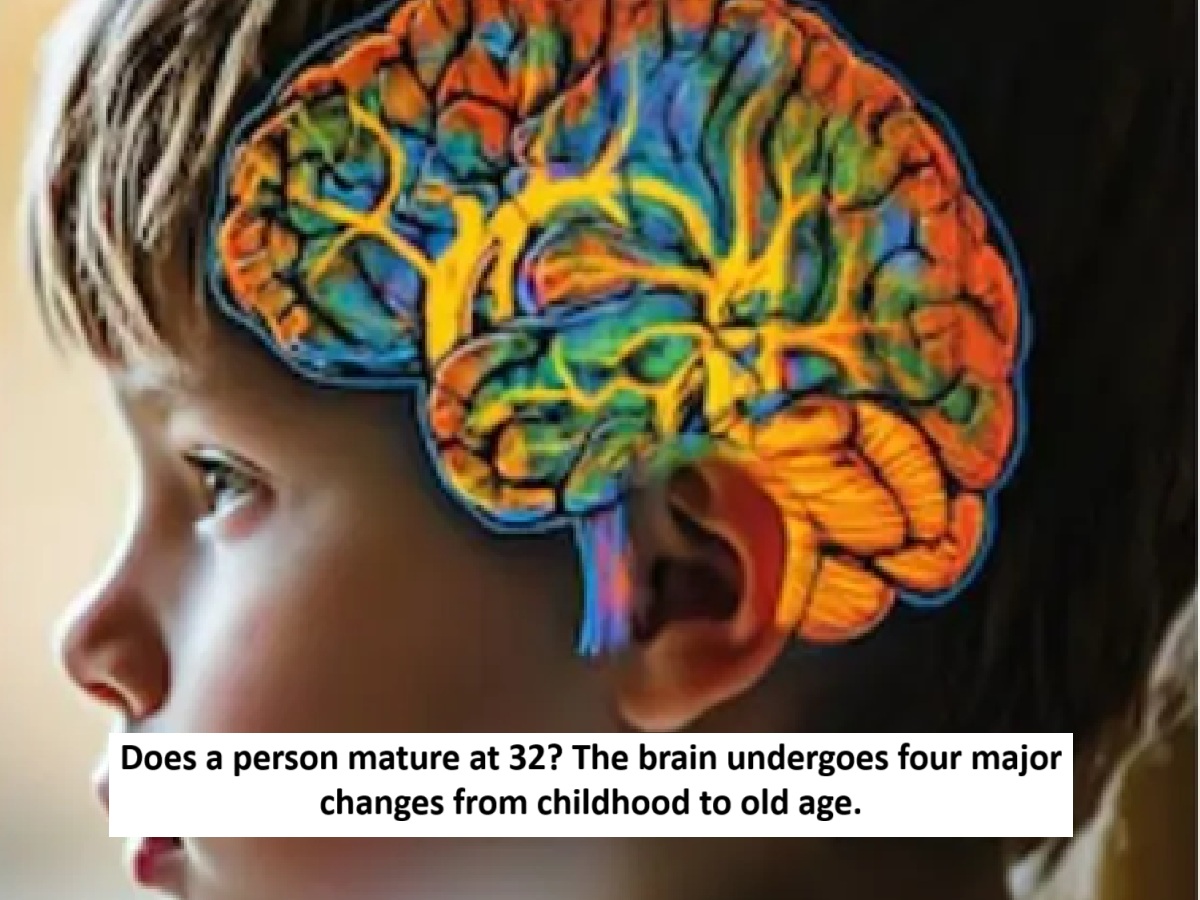
News Topical, Digital Desk : Our brains don't remain the same throughout our lives. They are constantly evolving and changing. As we age, our brains also undergo corresponding changes. Research has shown that a person's brain goes through four main stages (brain development stages).
These four stages are: 9, 32, 66, and 83 years of age. During these periods, significant changes occur in a person's brain, shaping their thinking, understanding, and worldview. Let's understand these four stages.
How was this research done?
Researchers at Cambridge University conducted this research. They studied the brains of 3,802 people, ranging in age from zero to ninety, in detail. They used modern techniques such as MRI scans.
The four stages of the brain throughout life
- Childhood to adolescence stage (age 9) – This is the age when a child's brain transitions from childhood to adolescence. During this time, communication between different parts of the brain increases rapidly, and learning speeds up.
- The Age of Maturity and Stability (32 Years of Age) - This age is considered a major turning point. After this, the brain enters "adult mode." This is the longest stage, lasting approximately three decades. During this period, the brain's structure becomes significantly more stable and mature. A person's thinking, decision-making, and emotional understanding are fully developed during this age. Therefore, it is said that by the age of 32, a person's brain is fully mature.
- Early old age (age 66) – Around this age, the brain enters the stage of "early aging." As retirement approaches, brain function slows slightly, but experience and knowledge remain at their peak.
- Late Aging (83 years old) – This is the beginning of the "late aging" stage. At this age, signs of brain structure deterioration may appear, and the risk of diseases like dementia may increase.
Why are these four stages important?
According to Alexa Mousley, lead researcher of the study, understanding these stages helps us understand why some people's brains develop differently at different stages of life, whether it's learning problems in childhood or memory loss in old age. This could help in the treatment and prevention of brain-related diseases in the future.
Read More: Want to get rid of a sagging belly? Pyramid walking is the easiest way, read its benefits.
--Advertisement--

 Share
Share



